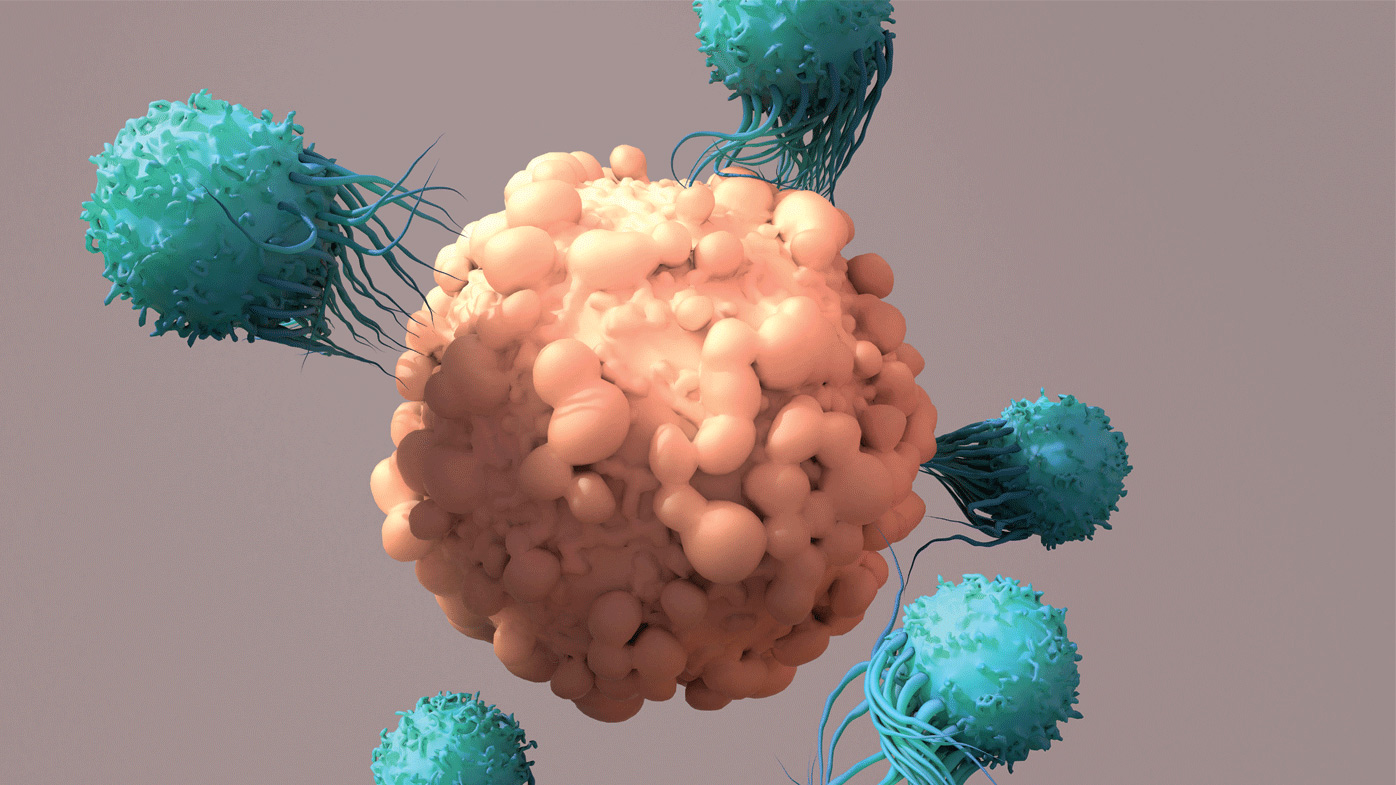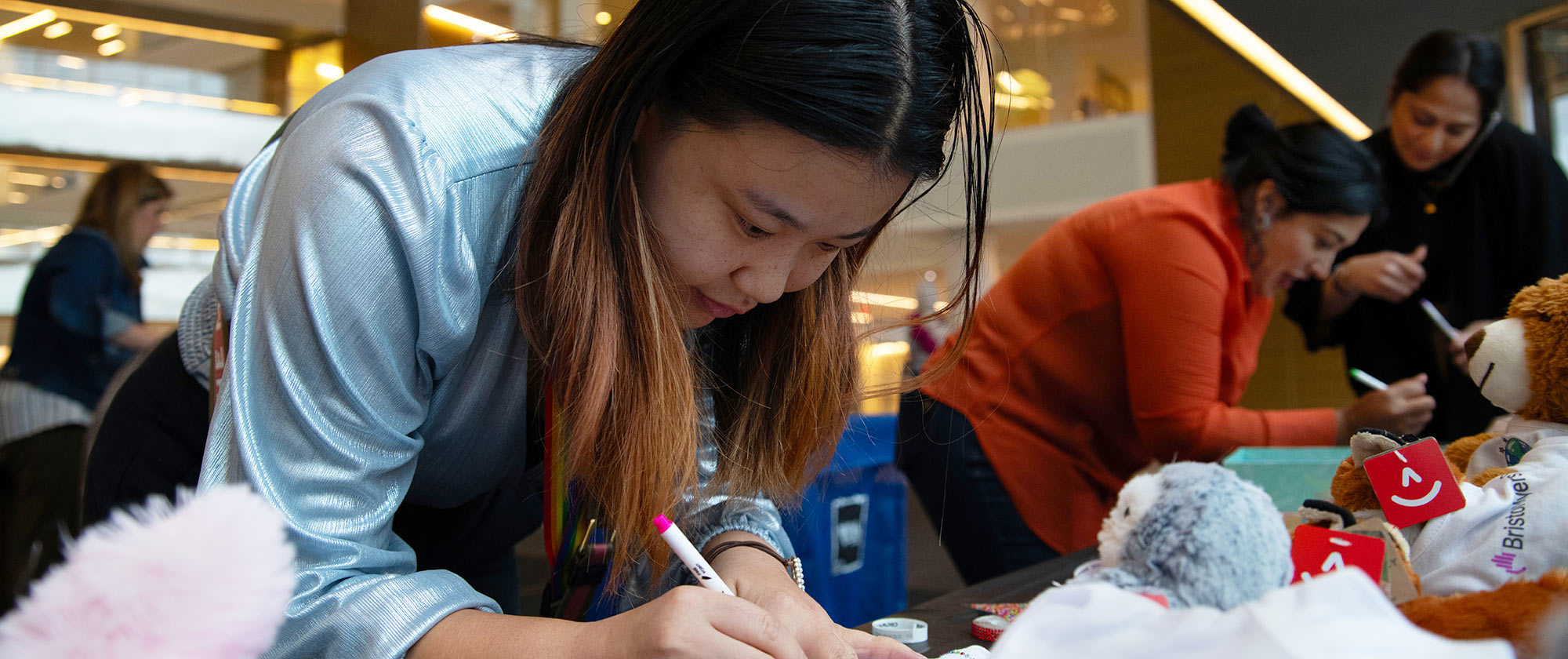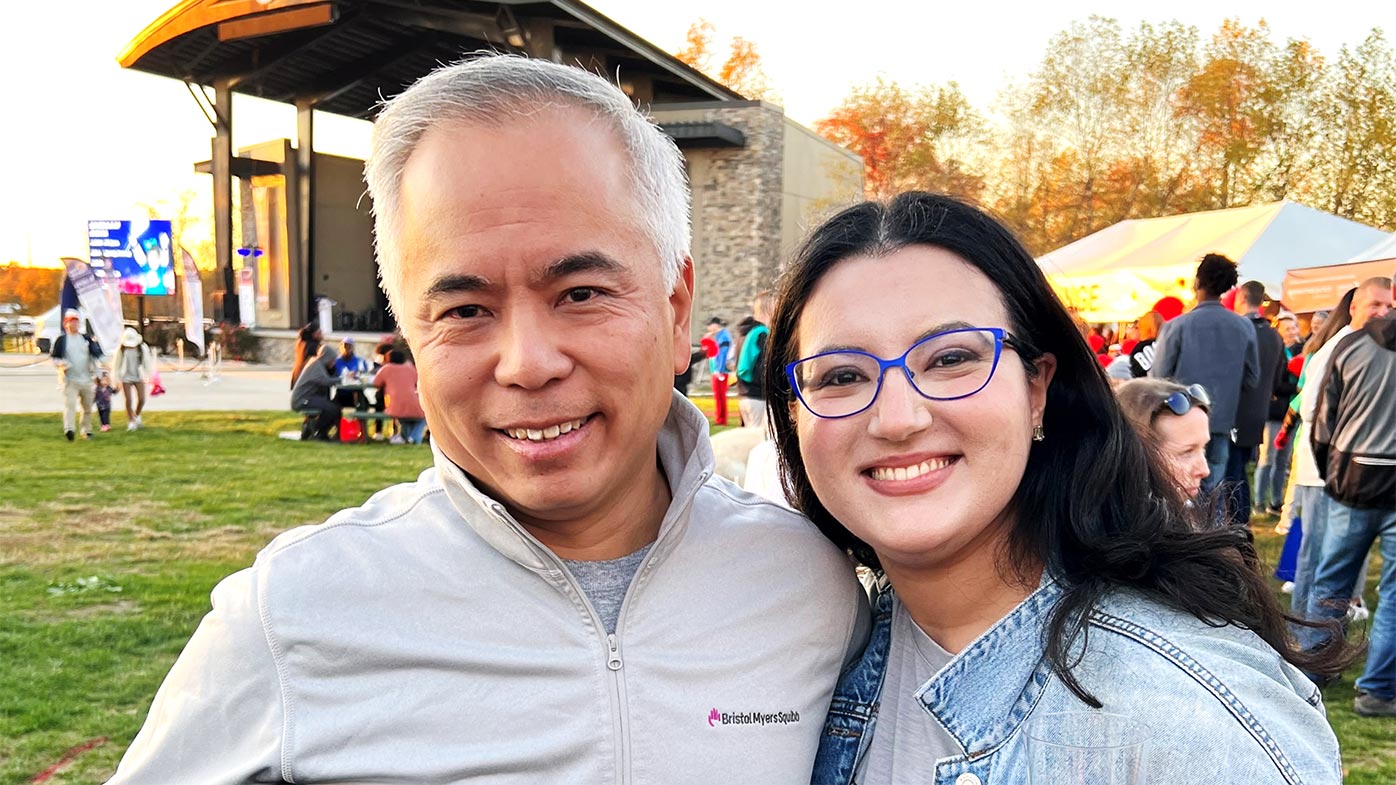Teri Foy, PhD, Senior Vice President, Research and Early Development Immuno-Oncology and Cell Therapy
Throughout my career, I have seen first-hand how the research & development to find innovative therapies to treat diseases has evolved over time, at each turn leading to growth in understanding and new approaches to solve complex challenges.
Today at Bristol Myers Squibb, our R&D team, spanning almost eight thousand employees, is an expansive and critical part of how we transform patients’ lives. A key part of our success has been the integration and collaboration across therapeutic areas which allows us to apply learnings from one area to progress development in others and repeat this process over and over.
We are proud of the foundation of cutting-edge modalities and platforms we’ve built, leveraging our deep immunotherapy expertise and differentiated R&D approach to pursue new standards of care across many different diseases.
Zooming in on cancer: Approaching research differently to drive progress
Within the research and development teams across oncology, hematology and cell therapy, we apply a “target-centric mindset” to drive our pipeline forward. This means that we first consider what we know about the biology of the tumors or cancer cells and the targets they are expressing, then we work to develop therapies that will attack those targets specifically. This helps us evaluate potential drug candidates in several ways, including safety, potency and efficacy.
These two approaches have also contributed to our growing ability to harness the immune system to combat cancer. Our leadership in the field of immuno-oncology has unlocked new solutions for patients with difficult-to-treat cancers, making long-term survival a possibility for more patients.
Turning research into action: Leveraging our immunotherapy expertise to advance cancer care
These approaches aren’t just theoretical; they have underpinned many of our most promising recent advances while paving the way for the future of innovation. A few examples of the Bristol Myers Squibb approach in action include the following:
- Immune checkpoint inhibition works by helping the immune system to better find and attack cancer cells, wherever they are in the body. In the decade since we brought the first inhibitor to market, we have led a revolution in the way many forms of cancers are treated, extending into earlier stages.
Leveraging our R&D approach, our scientists are now exploring different approaches that can influence the interactions between tumors, the microenvironment around tumors and the immune system to develop the next wave of therapeutic innovations in metastatic and early stages of cancer, while evolving how our medicines are administered to enhance the treatment journey for patients.
- CAR T cell therapy is currently transforming the way we view and treat certain cancers. A specific kind of immunotherapy, chimeric antigen receptor T (CAR T) cell therapy is a personalized treatment manufactured by engineering the individual patient’s own T-cells to bind to the targeted proteins on specific cancer cells and kill those cells.
As the first and only company with two approved CAR T cell therapies directed against two distinct targets and diseases, we are laser-focused on harnessing the promise of this therapy—a process that embodies our target-centric approach.
Our R&D team is exploring new targets and applying next-generation engineering to improve the efficacy of our cell therapies, as well as exploring the use of dual targeting approaches to overcome mechanisms of resistance and challenges with the tumor microenvironment for various populations.
The future for CAR T cell therapy is very exciting, and we continue to build on our learnings to help push this therapy forward and tackle the next wave of diseases to bring this therapy to even more patients.
- Protein degradation is the process by which proteins are removed from the cellular environment when they are no longer needed or are damaged or faulty in some way. Understanding, and then learning to intentionally harness this process as a therapeutic modality to eliminate proteins in a controllable manner has allowed us to explore a vast array of intracellular tumor targets, many of which were previously considered undruggable.
Protein degradation as a modality has become a key area of strength for Bristol Myers Squibb. Foundational IMiD® agents, the first generation of protein degraders we spearheaded, transformed the multiple myeloma treatment paradigm before we fully understood the mechanism through which they worked. Indeed, we initially developed these therapies only upon observation of their effects.
But, inspired by their promise, we worked to understand their mechanism of action to harness it with even more precision and power. We are now leveraging this technology to progress two next-generation methods of protein degradation, CELMoD™ agents and ligand-directed degraders (LDDs), from discovery to clinic. These classes hold great promise in a broad range of diseases, from multiple myeloma to acute myeloid leukemia, non-Hodgkin lymphoma, solid tumors and lupus.
R&D at Bristol Myers Squibb: Driving change together
One of the fantastic things about our team’s culture is the depth and breadth of our expertise across different scientific areas. Our unique R&D approach wouldn’t be possible without our teams who are distributed geographically to best work alongside academic and research partners and key colleagues to move our portfolio forward.
We then work together to build deep translational exploration into our clinical studies that complements our discovery work. As I look ahead and think about what’s next, I’m truly excited. A collaborative, cross-functional and research-focused culture can make all the difference as we look to achieve more groundbreaking success for patients globally.




